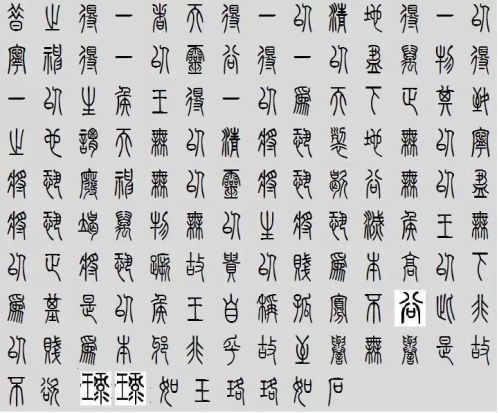Chapter 39
第三十九章
The things which from of old have got the One (the Tao) are this
昔之得一者,
Heaven which by it is bright and pure;
天得一以清;
Earth rendered thereby firm and sure;
地得一以宁;
Spirits with powers by it supplied;
神得一以灵;
Valleys kept full throughout their void
谷得一以盈,
All creatures which through it do live
万物得一以生;
Princes and kings who from it get the model which to all they give.
侯王得一而以为正。
All these are the results of the One (the Tao).
其致之也,
If heaven were not thus pure, it soon would rend;
谓天无以清,将恐裂;
If earth were not thus sure, 'twould break and bend;
地无以宁,将恐废;

Without these powers, the spirits soon would fail;
神无以灵,将恐歇;
If not so filled, the drought would parch each vale;
谷无以盈,将恐竭;
Without that life, creatures would pass away;
万物无以生,将恐灭;
Princes and kings, without that moral sway,
候王无以正,
However grand and high, would all decay.
将恐蹶。
Thus it is that dignity finds its (firm) root in its (previous) meanness,
故贵以贱为本,
and what is lofty finds its stability in the lowness (from which it rises).
高以下为基。
Hence princes and kings call themselves 'Orphans,' 'Men of small virtue,' and as 'Carriages without a nave.'
是以候王自称孤、寡、不谷。
Is not this an acknowledgment that in their considering themselves mean they see the foundation of their dignity?
此非以贱为本邪?非乎?
So it is that in the enumeration of the different parts of a carriage we do not come on what makes it answer the ends of a carriage.
故至誉无誉。
They do not wish to show themselves elegant-looking as jade, but (prefer) to be coarse-looking as an (ordinary) stone.
是故不欲琭琭如玉,珞珞如石。












